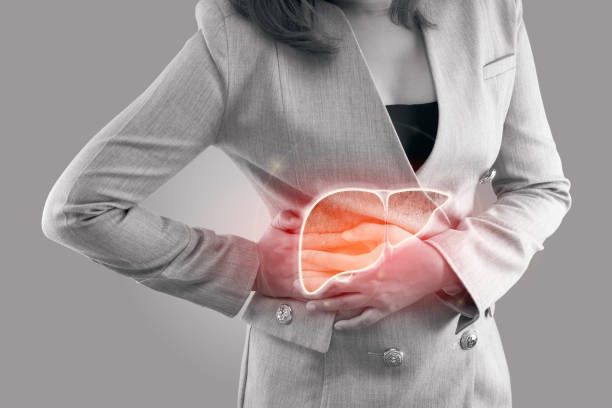Comprehensive Guide to Fatty Liver Disease Symptoms and Lifestyle Changes for Reducing Health Risks
Introduction:
Fatty liver disease has emerged as a significant health concern in recent years, affecting millions of individuals worldwide. It is characterized by the accumulation of excess fat in the liver cells, leading to inflammation and potential long-term damage. If left untreated, fatty liver disease can progress to more severe conditions, such as cirrhosis and liver failure. However, the good news is that by recognizing the symptoms and implementing certain lifestyle changes, you can effectively manage and reduce the associated health risks. In this comprehensive guide, we will explore the symptoms of fatty liver disease and provide valuable insights into lifestyle modifications that can aid in mitigating its impact on your health.
Understanding Fatty Liver Disease:
Fatty liver disease, also known as hepatic steatosis, encompasses a range of conditions characterized by the accumulation of fat in the liver. The two primary types of fatty liver disease are alcoholic fatty liver disease (AFLD) and non-alcoholic fatty liver disease (NAFLD). AFLD is caused by excessive alcohol consumption, while NAFLD is associated with factors such as obesity, diabetes, high cholesterol, and sedentary lifestyle.
Identifying Symptoms of Fatty Liver Disease:
1. Fatigue and Weakness: Individuals with fatty liver disease often experience persistent fatigue and weakness, which can impact their daily activities and overall quality of life.
2. Abdominal Discomfort: Some people may experience discomfort or pain in the upper right side of the abdomen, indicating liver inflammation.
3. Weight Loss or Loss of Appetite: Unexplained weight loss or a significant loss of appetite can be signs of liver dysfunction and should not be ignored.
4. Jaundice: In more advanced stages, yellowing of the skin and eyes (jaundice) may occur, indicating impaired liver function.
5. Abnormal Blood Test Results: Routine blood tests may reveal elevated liver enzymes, such as alanine aminotransferase (ALT) and aspartate aminotransferase (AST), indicating liver damage.
Lifestyle Changes for Reducing Health Risks:
1. Maintain a Healthy Weight: Obesity and excess body fat are significant risk factors for fatty liver disease. By adopting a balanced diet and engaging in regular physical activity, you can effectively manage your weight and reduce liver fat accumulation.
2. Follow a Nutritious Diet: A well-rounded diet that includes a variety of fruits, vegetables, whole grains, lean proteins, and healthy fats is essential for liver health. Avoid or minimize consumption of processed foods, saturated fats, and sugary beverages.
3. Limit Alcohol Consumption: For individuals with alcoholic fatty liver disease, it is crucial to eliminate or strictly limit alcohol intake. Consult a healthcare professional for guidance on safe alcohol limits or complete abstinence.
4. Regular Exercise: Engaging in regular physical activity not only helps with weight management but also improves insulin sensitivity, reduces liver fat, and enhances overall liver health. Aim for at least 150 minutes of moderate-intensity aerobic exercise each week, along with strength training exercises.
5. Manage Chronic Conditions: Individuals with underlying conditions such as diabetes, high blood pressure, and high cholesterol should work closely with their healthcare providers to manage these conditions effectively. Proper management helps reduce the risk and progression of fatty liver disease.
6. Avoid Unnecessary Medications: Certain medications, including over-the-counter drugs and herbal supplements, can cause liver damage. Always consult a healthcare professional before starting any new medication or supplement.
7. Quit Smoking: Smoking not only increases the risk of fatty liver disease but also worsens its progression. Quitting smoking is essential for overall liver health and reduces the risk of developing complications.
Conclusion:
Fatty liver disease is a prevalent condition that can have severe
health consequences if not properly addressed. By recognizing the symptoms and making crucial lifestyle changes, you can significantly reduce the associated health risks. Remember to consult a healthcare professional for accurate diagnosis, personalized advice, and ongoing monitoring. By adopting a healthy lifestyle, you can take charge of your liver health and pave the way for a better future.
Disclaimer: This article is for informational purposes only and does not substitute professional medical advice. Always consult a healthcare professional for accurate diagnosis and guidance regarding your specific condition.

0 Comments